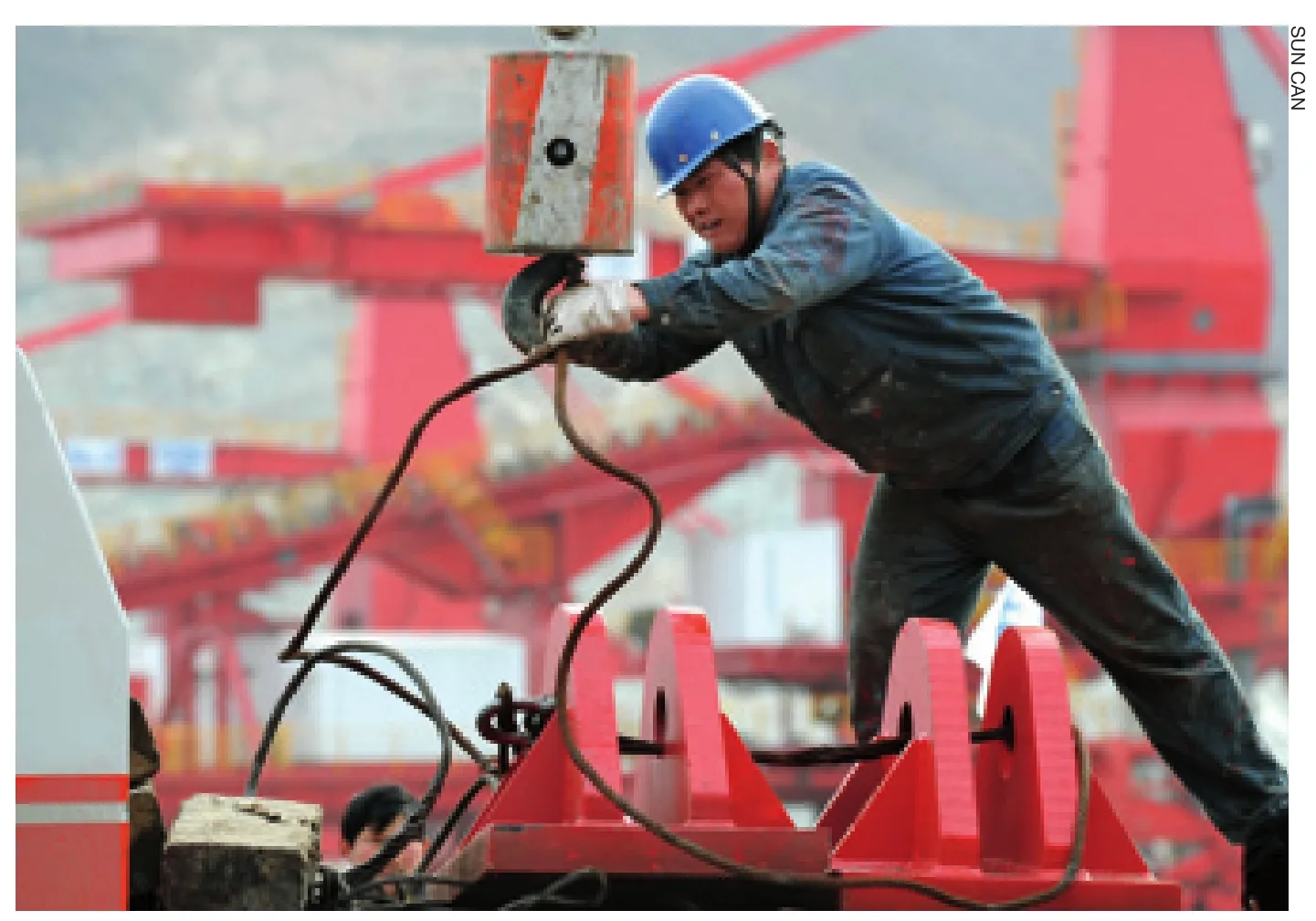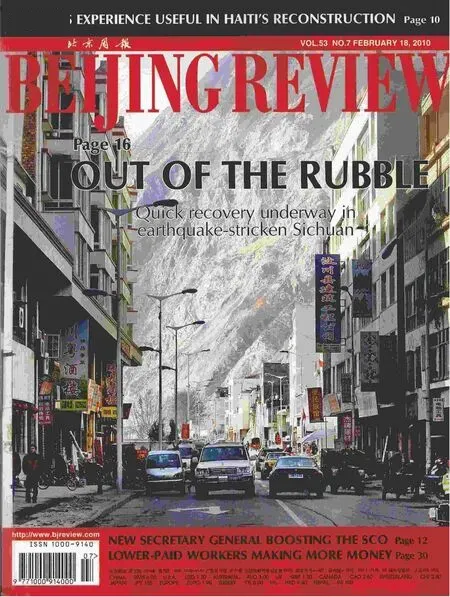A Much Needed Raise
Chinese provinces and municipalities unveil plans to raise their minimum wage standards
By HU YUE
In a move to bridge the growing rich-poor gap, provinces across China are placing minimum wage increases at the top of their agendas.
The Bureau of Human Resources and Social Security of the eastern coastal Jiangsu Province recently announced a plan to raise the minimum wage by 12 percent this year.Following its example are Beijing and Chongqing municipalities and Dongguan,a manufacturing hub in south Guangdong Province.
Minimum wage growth had stagnated in the country since late 2008 when the business mood soured and enterprises began feeling the pressures of the financial crisis.The government even called for a suspension of minimum wage growth to help businesses tide over the downturn.
But after several nervous months, the Chinese economy is already breathing a sigh of relief, paving the way for a boost in compensation for lower-paid earners.
Now, both the government and enterprises are in sound financial positions to improve the livelihoods of residents, said Jin Xin, Director of the Labor Relations Of fi ce under the Bureau of Human Resources and Social Security of Jiangsu Province.
Minimum wage increases send out a strong signal that the economy is fi nally regaining its lost ground, Jin said.
Hu Chi, a senior researcher with the China Enterprises Council, agreed. “Though the economy is fi ring ahead with full vitality,a wide divide is opening between the rich and the poor, leaving millions of people still mired in poverty,” said Hu.
With the minimum wage in Dongguan set at 770 yuan ($113) per month, many migrant workers from rural areas could take home only a few hundred yuan after paying charges for dormitory beds, food, water and electricity.
It has become imperative for policymakers to provide a basic pay floor protecting needy groups, said Hu.
“In addition, this will add a powerful incentive for thrift-minded consumers to bump up spending and offset the impact of rising consumer prices, which is a needed boon for the country’s rebalancing to rely more on domestic demands,” he said.
While it came as good news for employees, the new policy seems to have put many employers, especially small exporters, in a quandary.
The export slump led to closures of numerous factories in eastern coastal provinces,sending millions of migrant workers back home in early 2009. Many of these workers were content to resume farming practices in the countryside, unwilling to rush back into the fi ckle urban job market. This eventually left many factories short on labor when orders poured in as quickly as they had dried up.
Analysts believe the boost in the minimum wage could enhance the attractiveness of urban jobs to rural laborers, providing the muscle necessary to power the export machine. But an increase in labor would mean an increase in labor costs for manufacturers,not to mention currency appreciation and price hikes for raw materials.
“We have to pay more—otherwise we’d be short of workers,” said Chen Junping, a human resources manager at Dongguan Jackson Electronic Plastic Co.Ltd., a manufacturer of home appliances and smaller gadgets, in an interview with the 21st Century Business Herald. “With labor demands on the rise, the job seekers are becoming choosier, preferring easy work at bigger factories and holding off for better pay.”
He Yunyan, a sales manager with Shengxiang Textile Co. Ltd. in Wujiang,Jiangsu Province, said the new policy will surely subject his company to heavier cost burdens, but the pressure will be tolerable since very few of its employees earn minimum wages.
“The biggest difference is we are supposed to pay more for employees who get injured at work,” he said.
But smaller firms with a tight profit margin will be less able to emerge unscathed as they struggle to shrug off the economic downturn, said Gao Huiqing, a researcher with the State Information Center.
“It is therefore necessary for the government to cushion the blow with policy incentives such as tax breaks and cash subsidies,” he said.
Jiangsu Province, for example, clearly pledged efforts to support small and medium-sized enterprises with government purchases and favorable tax rates and strengthen regulation over the labor market,while Dongguan vowed to cut back on transportation charges and administrative fees for enterprises.
“There is still a growing need to continue minimum wage growth,” said Cai Zhizhou,a senior economist at Peking University. “It would force low-end manufacturers to move up the value chain and put more efforts into technological innovations. Despite likely painful wind-ups in the market, it is well worth the effort given the long-term bene fi ts for the country’s manufacturing competitiveness.” ■

BOOSTING INCOME: A dock worker in Jiangsu Province that recently vowed to improve the livelihood of low-income groups and the environment for small enterprises

